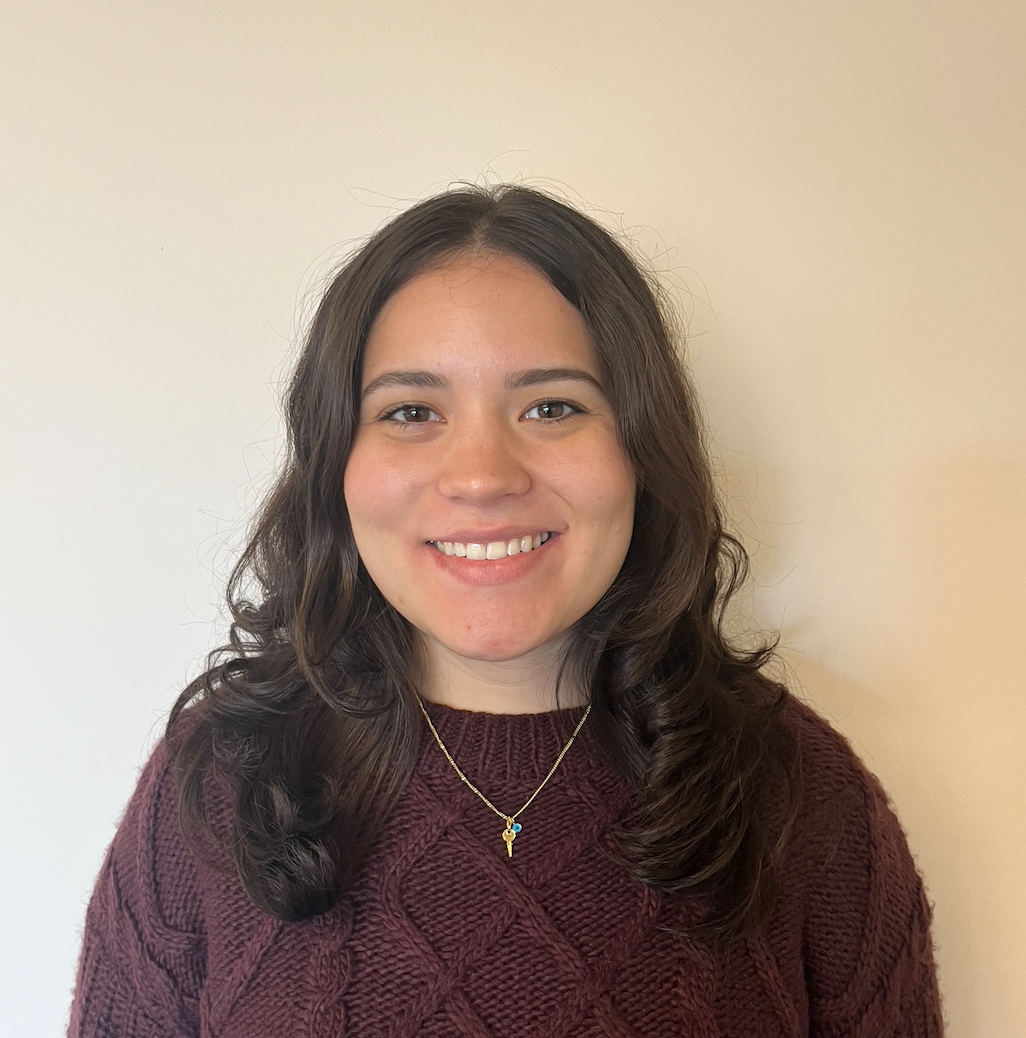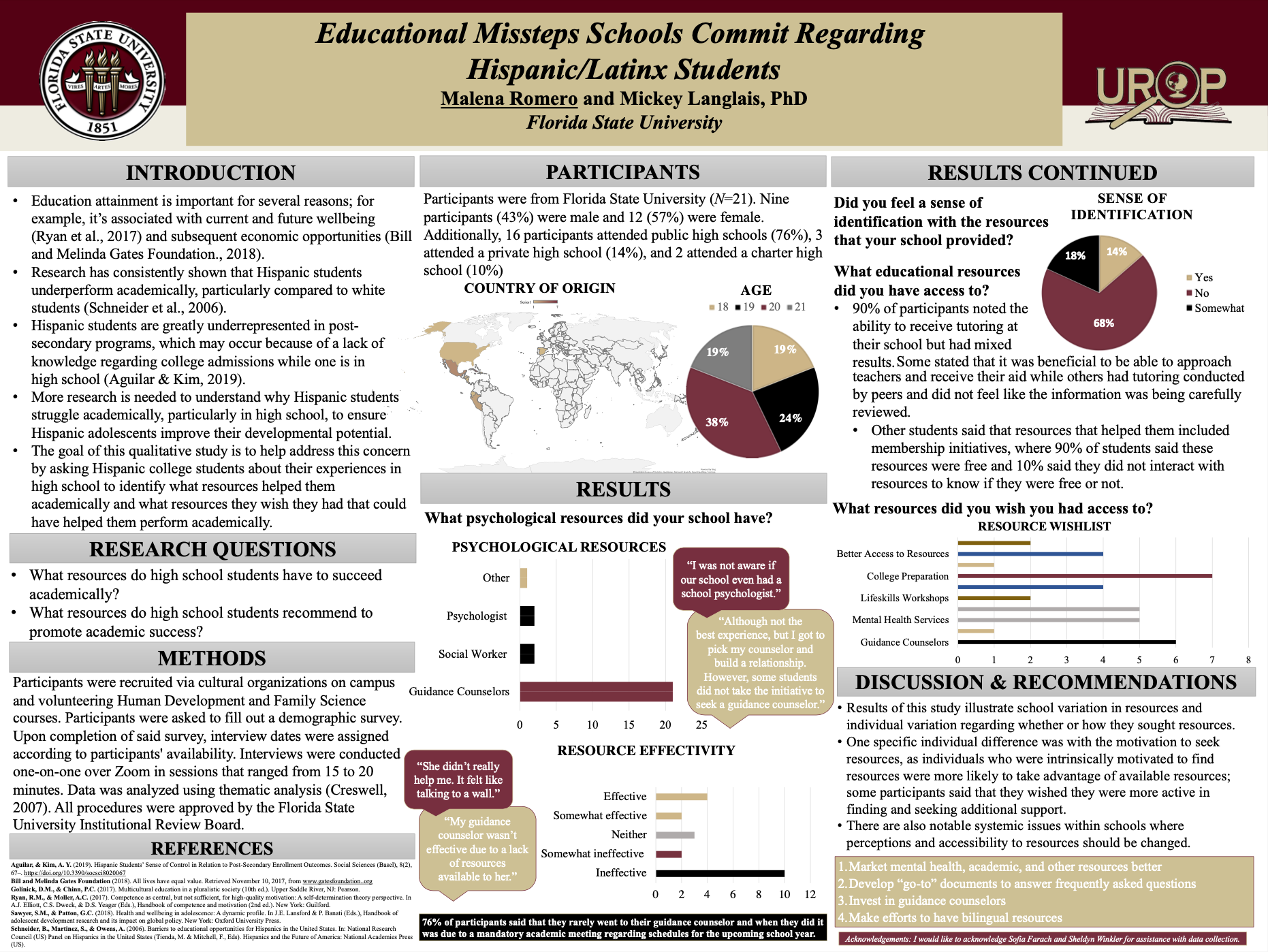Research Symposium
23rd annual Undergraduate Research Symposium, April 6, 2023
Malena Romero Poster Session 3: 2:45 pm - 3:45 pm/ Poster #249

BIO
Malena is a first-generation Cuban-American student from Miami, Florida interested in becoming a Speech Pathologist specializing in children with developmental disabilities in underserved communities. Her current research is done in hopes to improve the experience of Hispanic/Latinx students in high school in order to promote their likelihood of applying to college and pursuing higher education.
Educational Missteps Schools Commit Regarding Hispanic/Latinx Students
Authors: Malena Romero, Dr. Mickey LanglaisStudent Major: Dual Degree: Human Development & Family Science, Communication Science & Disorders
Mentor: Dr. Mickey Langlais
Mentor's Department: Human Development & Family Science Mentor's College: College of Health & Human Sciences Co-Presenters:
Abstract
Education attainment is important for several reasons; for example, it is associated with current and future well-being (Ryan et al., 2017) and subsequent economic opportunities (Darling et al., 2018). However, research has consistently shown that Hispanic students underperform academically, particularly compared to white students (Schneider et al., 2006). More research is needed to understand why Hispanic students struggle academically, particularly in high school, to ensure that Hispanic adolescents improve their developmental potential. This qualitative study will help address this concern by asking Hispanic college students about their experiences in high school to identify what resources helped them academically and what resources they wish they had that could have helped them perform academically. Twenty-one Hispanic college students completed semi-structured individual interviews over Zoom; some example questions were, what resources would you wish you had in high school to assist your educational experience? Multiple participants emphasized the utility of parental involvement and school administrators and faculty with whom they felt a sense of identification. Participants also reported that a lack of financial resources limited their ability to pursue additional college preparation, and a lack of confidence in guidance counselors made students uncomfortable requesting additional assistance. One suggestion for schools would be fostering an open dialogue between faculty and students about what students need to be successful beyond academia. Further suggestions will be provided to school districts regarding what improvements could be made to support Hispanic/Latinx students.
Keywords: Hispanic, Representation, Education

